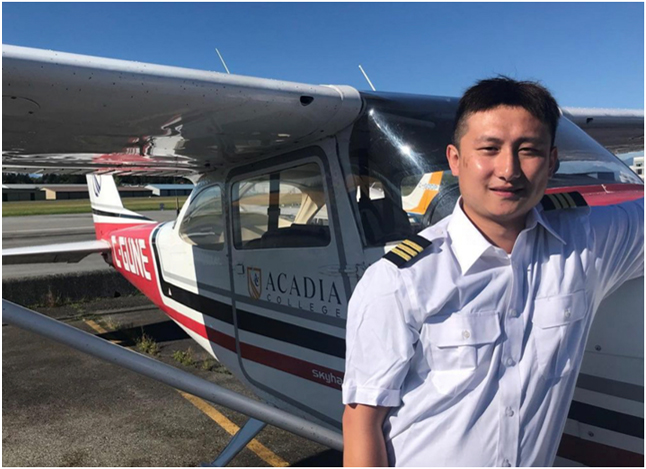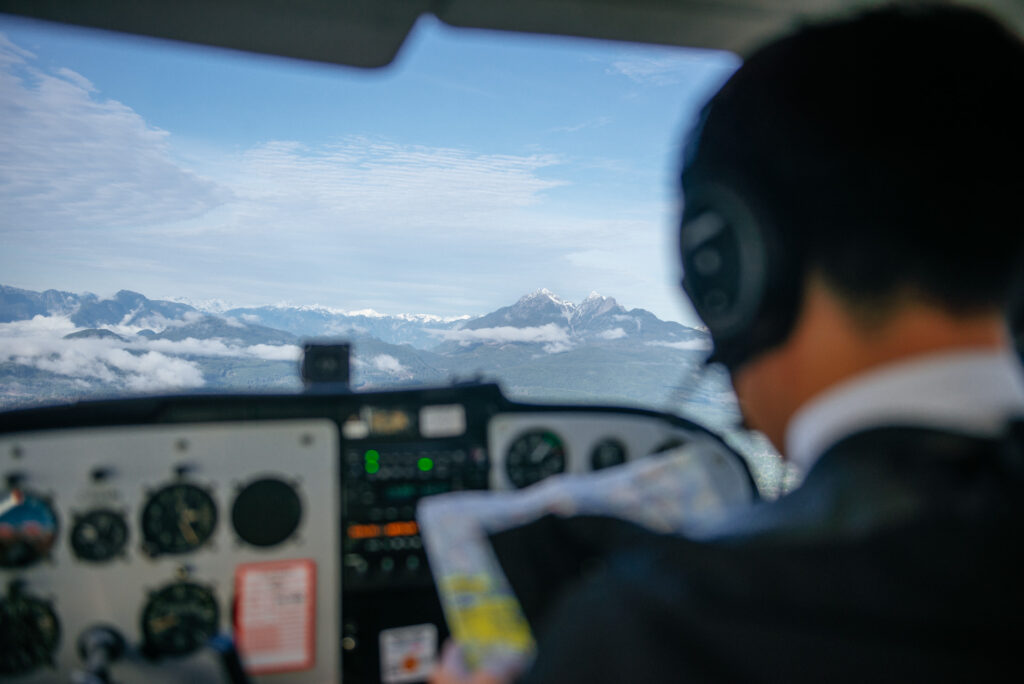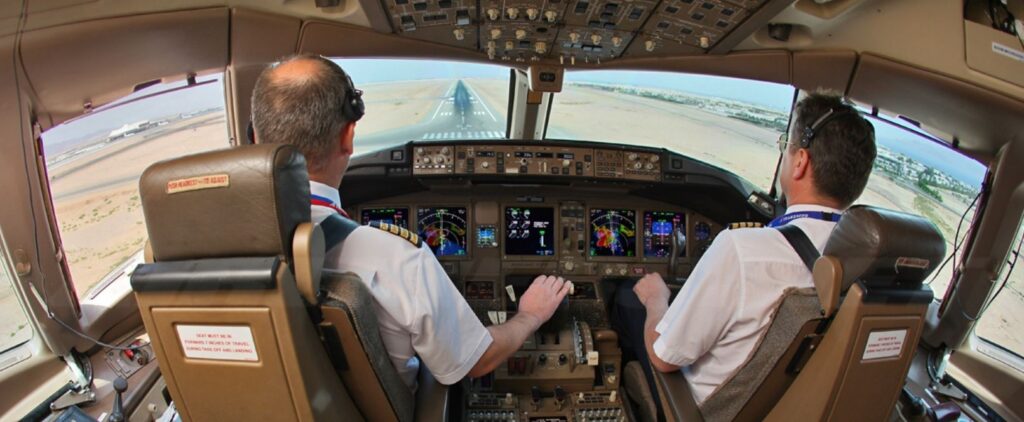- Programs
- Future Students
- Current Students
- Pay Now
- About Us
- FAQ’s
- Staff Resources
- Flight Training Operations
- Flight Safety Rules and Procedures
- Occupational Health and Safety
- Acadia College Anonymous Safety Reporting
- Instructor Qualifications
- Workplace Health and Safety Staff Notice Board
- Instructor Reference Library
- Staff Meeting Minutes
- Staff Training Records
- Quality Assurance Documents
- Programs
- Future Students
- Current Students
- Pay Now
- About Us
- FAQ’s
- Staff Resources
- Flight Training Operations
- Flight Safety Rules and Procedures
- Occupational Health and Safety
- Acadia College Anonymous Safety Reporting
- Instructor Qualifications
- Workplace Health and Safety Staff Notice Board
- Instructor Reference Library
- Staff Meeting Minutes
- Staff Training Records
- Quality Assurance Documents
Flight Instructor Rating Program

Successful completion of the Flight Instructor Rating Program at Acadia College will lead to to qualification as a Class IV Flight Instructor Rating issued by Transport Canada. The Class IV Rating is the starting point of all newly trained Flight Instructor, where progressive movement through the Class III, Class II, and Class I categories is based on experience in flight training operations.
The prerequisite for entrance into the Flight Instructor Rating Program is the Commercial Pilot Licence.
Flight Instructors may conduct dual flight instruction for issuance of Recreational Pilot Permits, Private Pilot Licences, Night Ratings, VFR OTT Ratings, as well as Commercial Pilot Licences. In addition, as long as their experience and qualifications meet the requirements established by Transport Canada, Flight Instructor can also conduct dual flight instruction for the issuance of Instrument Ratings, Multi-engine Class Ratings, Seaplane Ratings, and Ultra-light Pilot Permits.

Overview of Training
Like most pilot training endeavours, training for the Flight Instructor Rating has two parallel components–classroom training (groundschool)–which leads to writing the Transport Canada qualifying written examination, and air training–which leads to completion of the qualifying Transport Canada flight test. This two events have time limits–the flight test must be completed within two years of completing the written examination, or the written examination must be completed within a year of completing the flight test.
Acadia College runs a regular cycle of groundschool classes though out the year. The full time Instructor Rating Groundschool starts two time a year, with formal intake the first week of March, and the first week of September. Part-time training is possible, but must be arranged separately by individual students. Here are the Commercial Pilot Groundschool start dates for 2023 and 2024:
Full-Time Start Dates
Contact the Chief Flying Instructor directly for scheduling.

Prerequisites
Student can begin their Instructor Rating training once they have completed their Commercial Pilot Licence; however, groundschool and reading research can begin earlier with assigned pre-reading and preparation with respect to Preparatory Ground Instructor–the core feature of Instructor Rating groundschool. Contact the Chief Flying Instructor for more information of pre-reading and preparation for this program.
The following is a proposed change to this program’s prerequisites, pending approval from StudentAidBC: “Students seeking financial aid from StudentAidBC must have graduated from grade 12 or equivalent (B.C. high school diploma, B.C. Adult Graduation Diploma, General Educational Development) or an equivalent secondary school completion from another jurisdiction; or a minimum of 19 years of age or older before the start of classes and has demonstrated evidence at the appropriate level of literacy, numeracy, comprehension and/or written skills to enable successful completion of the program.” Please contact the CFI if you have any comments or questions.
To meet the requirements necessary to write the qualifying Transport Canada written examination for Flight Instructor Rating, student must complete 15 hours of dual flight instruction, and must have received a letter of recommendation from a Flight Instructor. Once the written examination is successfully completed, students have one year to complete the qualifying Flight Instructor Rating Flight Test.
Student can begin their air instruction for the Flight Instructor Rating once they qualify for their Commercial Pilot Licence.
Instructor’s First Flight of the Day

Transport Canada’s Minimum Requirements for Completion
Knowledge Requirements—Groundschool Instruction
Candidates must complete a minimum of 25 hours of Instructor Rating groundschool instruction which must include the following:
- practical application of the basic principles of learning and techniques of instruction;
- preparation and use of lesson plans;
- procedures for planning and presenting preparatory ground instruction, pre-flight briefings, in-flight instruction, and post-flight debriefings;
- theory of flight required to teach the air exercises;
- aircraft flight manuals and aircraft operating limits;
- presentation of pilot decision-making concepts; and
- the use of the Transport Canada Flight Instructor Guide, Flight Training Manual, Canadian Aviation Regulations, Part IV, and the appropriate Flight Test schedules and guides.
Knowledge Requirements—Written Examination
Candidates must obtain a minimum of 70% in the written examination Flight Instructor Rating—Aeroplane Class 4 (AIRAF), which includes the following subjects:
- Air Law—Part IV of the CARs—Personnel Licensing and Training, including general rules for pilot recency requirements, administration of pilot licences and ratings, requirements for personal logs; written examination and flight test administration rules; privileges and qualification requirements for permits, licences and rating; medical administrative requirements for pilot training; and regulations pertaining to flight training administration and operations;
- Fundamentals of Instructing—learning factors, including factors that affect preparation, presentation, critique, evaluation methods of student pilots; techniques and methods of flight instruction; techniques and strategies for teaching air exercises; methods of integrating human factors into flight instruction; and effective student communication in the cockpit and on the ground;
- Aeronautics—General Knowledge—effective threat and error management, aircraft flight manuals and operating limitations, and flight test standards.
Experience Requirements
Candidates must complete a minimum of 30 hours of dual flight instruction on overall pilot proficiency and the presentation of all exercises set out in the Flight Instructor Guides and shall include a minimum of 5 hours of training in the teaching of instrument flight skills. A maximum 5 of the 30 hours may be conducted on an approved aeroplane simulator or flight training device.
Skill Requirements
Candidates must successfully complete a flight test in accordance with Flight Instructor Flight Test Guide.

Flight Instructor Rating Estimated Cost
Ground School
Hours: 25 hours
Total: $ 1000.00
Air Instruction
Dual Flying
Hours: 30 hours @ $264.00/hour
Total: $ 7920.00
Solo Flying
Not applicable
Ground Briefings
Hours: 6 hours @ $70.00/hour
Total: $ 420.00
Total Flight Training Costs: $9340.00
Other Fees
Application Fee for Canadian Students: $150.00
Applications Fee for International Students: $350.00
Administration Fee for International Students: $500.00

Additional Information regarding Pilot Training Costs
Importantly, training costs vary with the frequency of training and each student’s skill, and the training time required for students to meet the qualifying performance standards vary. Training costs can be substantially reduced in conjunction with regular flying and effective student self-study and preparation for flights.
Prepayment of fees is not required. Students pay tuition and aircraft unitizations at the conclusion of training flights, and pay groundschool tuition at the beginning of the session.
All flight schools in the Province British Columbia are required by law to charge the Provincial Sales Tax (7%) to all dual training flights, and they must charge both the PST and the GST (5%) to all solo training flights. Books and supplies are charged both GST and PST. Visa, MasterCard, American Express, and Debit Cards are accepted, but there is a 3% surcharge on credit card payments.
Effective January 1, 2023, the aircraft utilization rates for Acadia College students are as follows:
Cessna 152: $194 per hour
Cessna 172: $220 per hour
Importantly, Acadia College DOES NOT APPLY A “FUEL SURCHARGE”. Owing to fluctuational fuel costs, aircraft utilization rates for students are subject to change without notice.
For additional information on pilot training costs, contact the Chief Flying Instructor.
Get in touch
Surrey Campus (Academic)
217 - 9801 King George Boulevard,
Surrey, BC V3T 5H5
1(778)-722-2342
Enquiries : info@acadiacollege.ca
Get Direction
Langley Campus (Aviation)
#5-5333 216 street
Langley Airport,
Langley BC V2Y 2N3
1(604)-795-2220
Enquiries : aviation@acadiacollege.ca
Get Direction
Copyright © 2023 - Acadia College. All rights reserved.



